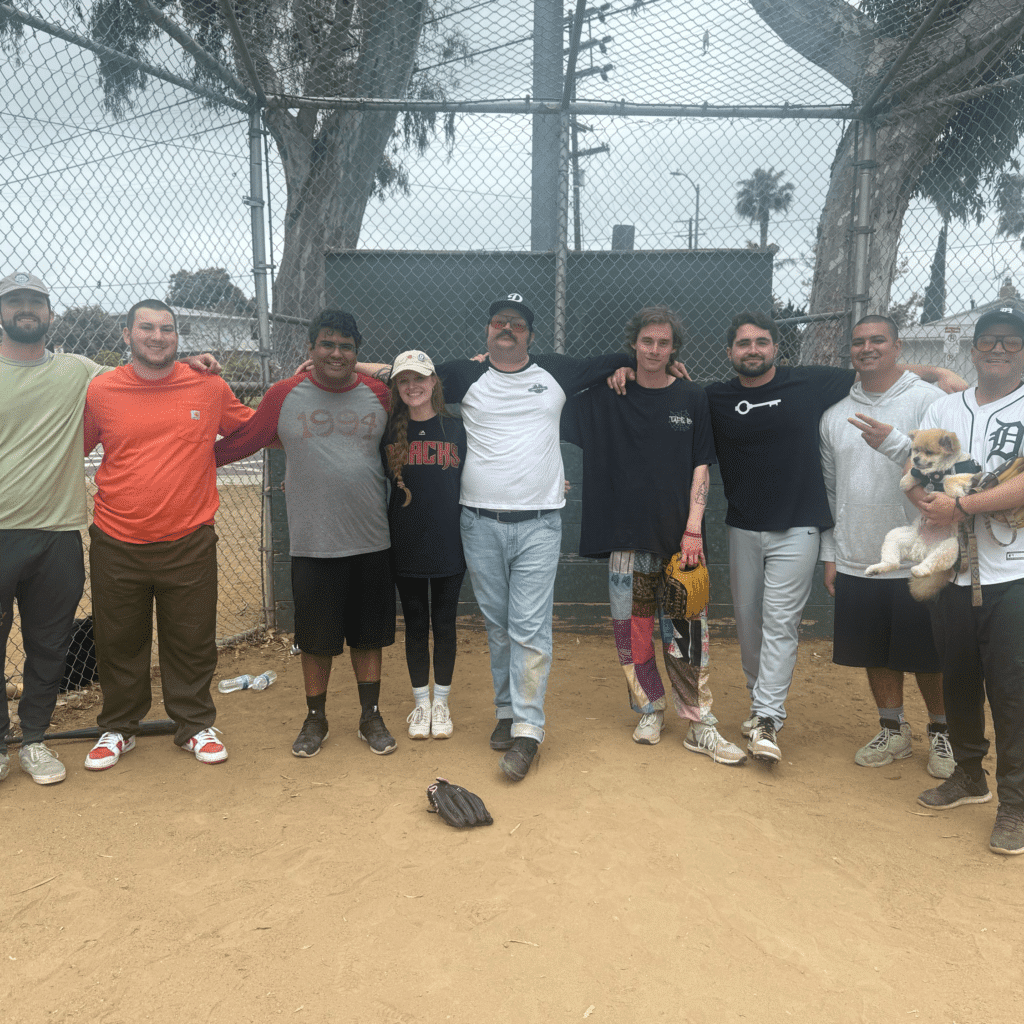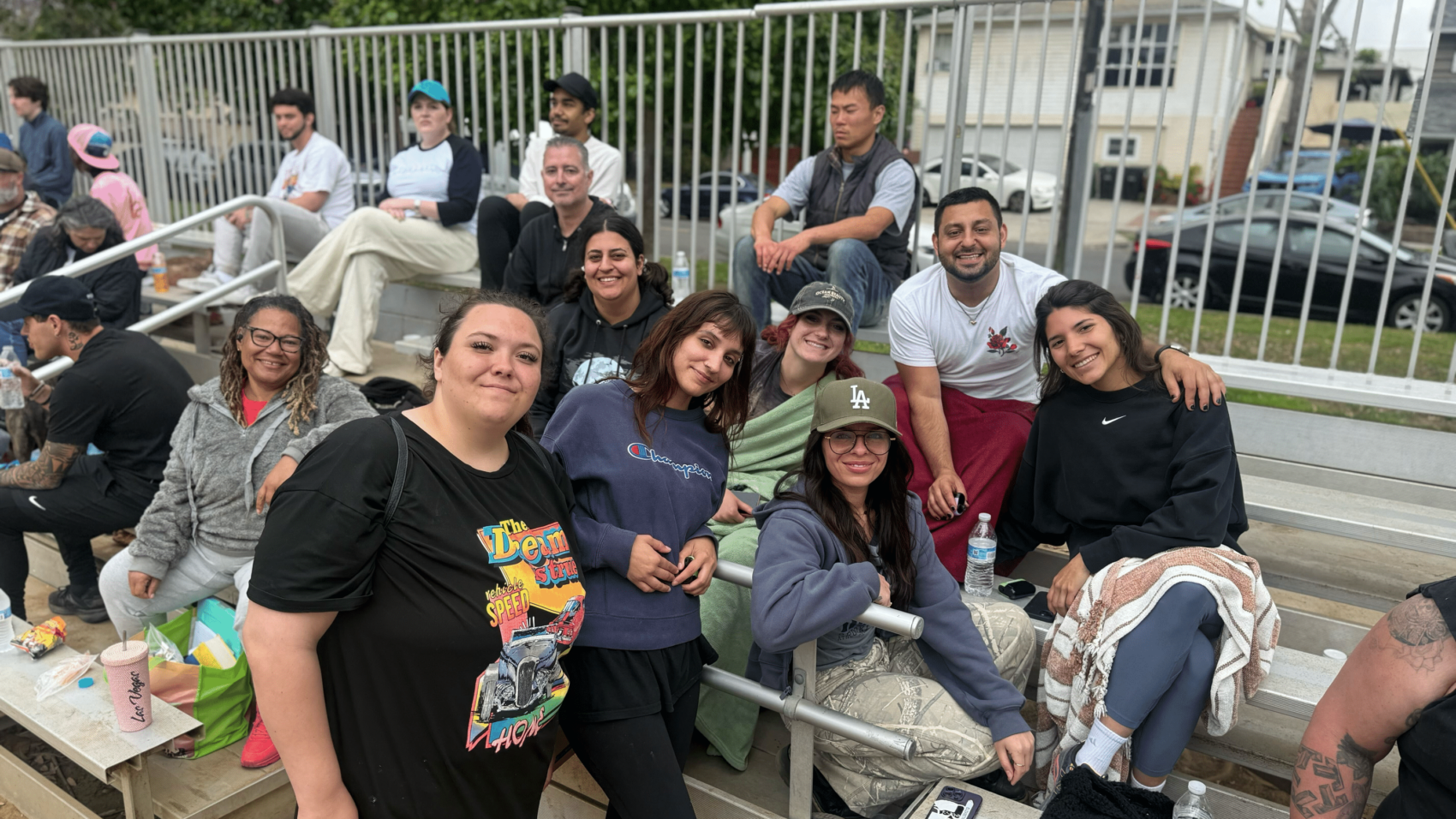When someone first enters early recovery, life can feel painfully small, reduced to mere survival. At The Last House Sober Living, we understand this struggle deeply. Recovery is not just about stopping drugs or alcohol; it’s about reclaiming your life. With over fourteen years of experience, we offer a unique program that emphasizes support, accountability, and community activities. Our goal is to help you expand your world, transforming isolation into connection and chaos into routine. Discover how sobriety can feel like freedom and learn to enjoy life again. Your journey to a bigger life starts here.
What Makes a Great Sober Living Home

Early recovery is fragile. It is the phase where someone begins to rebuild their life after the chaos of addiction, often while still wrestling with cravings, emotions, and the weight of past mistakes. For young men who are newly sober, a sober living home can be the bridge between treatment and true independence. But not all sober living environments are created equal. So what actually makes a sober living home great?
At The Last House, we believe that five essential elements create the foundation for a transformative sober living experience: accountability, structure, community, routine, and peer support. When these elements are done right, young men do not just stay sober — they begin to thrive.
Accountability
Accountability is one of the most powerful tools in early recovery. When someone has lived for years in denial, chaos, and impulsivity, learning to be responsible for their words and actions is a major shift. A great sober living home creates clear expectations and holds residents accountable to them.
This can include curfews, chore lists, meeting attendance, drug testing, and consistent communication with staff. But true accountability goes deeper. It is not just about following the rules — it is about becoming a man of integrity. At The Last House, residents are encouraged to own their mistakes, clean up their side of the street, and take responsibility for their growth. When a client makes a poor decision, the goal is not to punish them — it is to help them learn. This mindset fosters maturity and trust, and it sets the stage for long-term sobriety.
Structure
Structure is the backbone of a great sober living home. Without it, the risk of falling back into old habits increases dramatically. Chaos is comfortable for someone who is newly sober — after all, that is what they are used to. But recovery requires discipline, and discipline starts with a structured environment.
A structured sober living home provides a clear framework for daily life. This can include mandatory morning routines, curfews, weekly schedules, group meetings, and consistent house expectations. It is not about being controlling. It is about creating a space where healthy habits can develop.
At The Last House, we design structure to mirror real life. Clients wake up early. They go to 12-step meetings. They participate in house responsibilities. Many begin working part-time, attending school, or doing service work. The result is a smooth transition into the real world — one where structure is not a foreign concept, but a familiar foundation.
Community
Addiction is a disease of isolation. Sobriety, on the other hand, is a journey of connection. One of the most important ingredients in any great sober living home is the community that lives within it. Who surrounds you matters. Who you grow with matters.
In a great sober living home, community is not just about sharing a house. It is about building a brotherhood. At The Last House, we foster a community where young men support one another, challenge one another, and hold each other up when things get hard. It is common to see clients going to meetings together, playing sports on the weekends, cooking meals, or just hanging out and talking about life.
This kind of environment creates accountability and belonging at the same time. It helps clients learn to navigate relationships, communicate effectively, and become better friends, brothers, and teammates. More importantly, it helps them realize they are not alone.
Routine
Without routine, most people feel ungrounded. For someone in early recovery, that instability can be dangerous. A great sober living home promotes consistency through routine, helping residents rebuild their lives one day at a time.
Routine does not just mean waking up and making your bed. It means having a predictable rhythm to each day and each week. At The Last House, our routine includes morning meditation, house meetings, therapy or IOP sessions, job search support, nighttime check-ins, and recovery-related goals. Each day has intention. Each task has a purpose.
Over time, these routines become habits. And those habits begin to shape character. Residents start to experience the freedom that comes from consistency. They learn how to show up — not just for others, but for themselves.
Peer Support
One of the most underrated aspects of sober living is the peer-to-peer mentorship that happens naturally when a program is run well. In a great sober living home, new clients look up to the ones who have been there longer. They learn by example. They ask for advice. They watch what it looks like to live with humility, take direction, and grow through struggle.
At The Last House, this kind of peer support is built into the culture. Alumni return to share their experience. Senior house members mentor new clients. It is not a rigid hierarchy — it is a living example of what recovery looks like over time. When a client sees someone who was in their shoes a few months ago now thriving, it gives them hope. And when a client who is doing well is asked to be of service to someone newer, it gives them purpose.
Peer support is not about being perfect. It is about walking the path together. And that makes all the difference.
Leadership and Staff Involvement
Behind every great sober living home is a team of staff members who care deeply about the residents. Leadership sets the tone. If staff are checked out, inconsistent, or disconnected, it creates a culture of apathy. But when staff are engaged, intentional, and connected to the mission, residents thrive.
At The Last House, our staff are not just there to supervise — they are mentors, role models, and guides. They know the names, the stories, and the struggles of each client. They are present in house meetings, at events, and on the sidelines during weekend volleyball games. That kind of leadership cannot be faked. And residents feel it.
Why Saturday Events Matter at The Last House: Building Brotherhood Through Sobriety
At The Last House Sober Living in West Los Angeles, we know that sobriety is more than just abstaining from drugs and alcohol. It’s about building a life that feels full, connected, and fun. That’s why every Saturday, we do something different. We get outside. We get active. We laugh together. We make memories. But most importantly, we strengthen the bonds that hold us accountable and keep us moving forward in our recovery. These Saturday events aren’t just an afterthought or a bonus—they’re a core part of the treatment experience we offer our residents. They give structure, purpose, and joy to the weekend, a time that can otherwise feel unstructured or triggering during early recovery.
Each week, one of the guys is responsible for planning the event. This keeps everyone involved and invested. It encourages leadership, creativity, and participation. Sometimes the event is high energy, like a basketball game or a competitive pickleball match. Other times, it’s more laid back, like a beach day in Santa Monica or watching a UFC fight as a house. No matter what the activity is, the goal is the same: to enjoy life sober, to build trust, and to create community. That’s what sets The Last House apart from other Los Angeles sober living homes. We believe that treatment doesn’t end with therapy sessions—it lives in the real world, in these moments of connection and shared experience.
Many of our Saturday events take place in and around the neighborhoods of West Los Angeles. Whether we’re exploring a museum downtown, hiking in Malibu, mini golfing in Sherman Oaks, or hosting a backyard barbecue at the house, the city becomes a playground for sober living. Los Angeles is filled with opportunities for fun that don’t require substance use, and part of our mission is to reintroduce our residents to these kinds of experiences. When you remove drugs and alcohol from your life, there’s a fear that you’ll never have fun again. But we prove that wrong every weekend.
Planning and leading the Saturday event is also a chance for residents to step into a new level of responsibility. For guys who have been living in chaos or isolation, it’s powerful to take ownership of something that brings people together. It could be as simple as organizing a water balloon fight in the backyard, or as involved as booking a trip to the museum and making sure everyone has a ride. But no matter the scale, the act of planning it matters. It builds self-esteem. It gives purpose. It shows the guys that their ideas and effort can impact others in a positive way. And in recovery, that sense of purpose is everything.

The camaraderie that grows through these Saturday outings is one of the most important parts of our long-term recovery model. Sober living isn’t just about avoiding relapse—it’s about learning how to live. And no one does that alone. These group experiences create real bonds. The kind that carry over into weekday life. The kind that help someone feel safe enough to share honestly in a group. The kind that get someone to speak up when they’re struggling instead of keeping it to themselves. By laughing together, sweating together, even just hanging out together, we build the kind of trust and loyalty that turns a group of guys into a brotherhood.
There’s also something healing about play. After months or years of pain, burnout, and chaos, it’s a relief to just let loose. To chase a volleyball across the sand. To yell at the TV during a football game. To goof around at a miniature golf course or roast each other over burgers during a backyard cookout. These aren’t childish activities—they’re reminders that joy is allowed. That you can be sober and still feel light. Still feel free. Still feel human.
Our Saturday events also serve as an important accountability tool. Everyone is expected to show up, participate, and be present. It doesn’t matter if someone’s been having a hard week—they’re encouraged to show up anyway. And what often happens is that guys who didn’t feel like joining end up laughing the hardest. They feel better by the end. They feel included. That kind of momentum matters in recovery. When you consistently show up for your peers, you start to show up for yourself.
Over time, these events create a rhythm. Something residents can look forward to. Something they can count on. Structure is vital in early sobriety, especially for those coming from inpatient treatment or chaotic environments. Having a consistent weekly event that blends fun with structure reinforces that life in recovery is both stable and exciting. It helps bridge the gap between the treatment world and the real world. It makes the idea of sober adulthood less scary and more inviting.
Saturday events also become something our alumni remember and cherish. Many of the guys who have graduated from The Last House still talk about their favorite outings. They remember the spontaneous laughter, the awkward attempts at new sports, the moments of connection. These experiences become part of the story they carry with them into long-term recovery. And for those who stay involved with the house after graduation, they often come back to participate or even help plan future events. That sense of continuity reinforces the community aspect of what we do. It turns sober living into a lifelong brotherhood, not just a temporary program.
In a city like Los Angeles, where temptation and distraction are everywhere, creating intentional moments of fun and fellowship becomes even more important. West Los Angeles in particular is filled with nightlife, entertainment, and high-paced living. But there’s also incredible natural beauty, cultural richness, and creative energy. Our Saturday events help residents reconnect with the parts of the city that support their recovery. They get to experience museums, beaches, sports, and community events in a new light. Not as places to party, but as places to grow. Places to live. Places to thrive.
The Last House is not just another Los Angeles sober living home. We are a structured, purpose-driven community that understands the importance of shared experience in recovery. Our Saturday events are not optional add-ons—they are pillars of our program. They help our residents build friendships, take initiative, and rediscover joy. They remind everyone that sobriety is not an end, but a beginning. A beginning filled with laughter, adventure, and real connection.
So whether we’re on the basketball court, swimming in the ocean, or just hanging out in the backyard throwing water balloons, we’re doing more than just killing time. We’re building lives. We’re rebuilding trust. We’re showing up for one another. And we’re proving, every single week, that life in recovery can be exciting, meaningful, and absolutely worth it.

The Last House’s 6th Annual Softball Tournament Brings the Community Together
This past weekend, The Last House Sober Living hosted its 6th annual softball tournament — and it was one for the books. The energy was high, the sun was out, and the sense of community was stronger than ever.
The Bluffs Women’s Sober Living, The Last House, and The Nook Men’s Sober Living all came out ready to play. Alongside them were Thrive staff, alumni, and even a few families cheering from the sidelines. Everyone was in it together.
What made this year different was the focus on fun and unity. Instead of sticking with the usual teams, we mixed it up and picked teams at random. It wasn’t about winning. It was about connecting. Most of the players already knew each other from other house events like the Cozy Social — a monthly get-together where people in the program come together to check in, share laughs, and build real friendships.
In the weeks leading up to the tournament, the sober livings had been practicing together. It wasn’t just about getting better at softball. It was about showing up for one another. We’d blast music during practice, mess around, and enjoy simply being outside together. That same energy carried through to game day.
Families showed up to support their loved ones and take part in the celebration. There were hugs, high-fives, and plenty of moments that reminded everyone why we do what we do.
This tournament wasn’t just about the game. It was about the people. About showing that recovery can be full of laughter, connection, and joy. That even after everything, we can still come together, play ball, and make some real memories.
Here’s to another year of building each other up — on and off the field.
Congratulations to Team #3 on an awesome win!!

The Last House Success Story: Brennan Young
A Last House Sober Living Success Story. Brennan Young’s own words on his journey to sobriety and his thoughts on his future. Here from this amazing young man.
Dopamine Detox: How The Last House Sober Living Helps You Reset, Recover, and Rebuild Your Life
Let’s face it—life today can feel overwhelming. Social media, junk food, endless streaming—it’s all designed to grab your attention and keep you hooked. All these things trigger your brain’s dopamine system, giving you little hits of “feel-good” chemicals. But here’s the catch: the more you chase those quick dopamine fixes, the harder it becomes to enjoy the deeper, more meaningful rewards in life.
If you’re recovering from drugs and alcohol or dealing with mental health struggles, this hits even harder. Addiction rewires your brain to crave those instant highs, and even when you’re sober, that pattern can linger, making it tough to feel happy or fulfilled. This is where the idea of a dopamine detox can make a huge difference.
At The Last House in Los Angeles, our long-term sober living program is designed to help you hit the reset button on your brain, build healthy habits, and find joy in the little things again. By combining structure, a strong sober community, and support for your mental health, we help you replace unhealthy patterns with a life full of purpose, confidence, and real connection. Let’s break it down.
What Is a Dopamine Detox?
First off, let’s clear something up—a dopamine detox isn’t about getting rid of dopamine. Dopamine is a natural and essential brain chemical that helps with motivation, pleasure, and reward. The goal of a dopamine detox is to reset your brain by stepping back from unhealthy sources of dopamine, like drugs, alcohol, social media, or impulsive habits, and refocusing on healthier ways to feel good.
For someone recovering from addiction, this is huge. Drugs and alcohol hijack your brain’s dopamine system, flooding it with “false” pleasure that throws everything out of balance. Over time, this makes it harder to enjoy the simpler, slower joys in life, like a good conversation, a workout, or even just feeling proud of yourself for accomplishing something.
A dopamine detox helps you break free from those quick-fix cravings and retrain your brain to find happiness in meaningful, lasting ways. And when you’re working through mental health challenges, like anxiety or depression, a dopamine detox can also help you find stability, balance, and calm.
Why Routine Is Key to Recovery
If dopamine detox is about resetting your brain, routine is the tool that makes it happen. Routine creates structure in your day, helps you stay focused, and builds a sense of stability—something that’s often missing when you’re battling addiction or mental health struggles.
At The Last House, we put a big emphasis on routine because we know it’s a game-changer for recovery. Here’s why:
1. It Boosts Productivity
When you have a clear structure for your day, it’s easier to focus on the things that matter. Instead of feeling overwhelmed or distracted, you can work on what’s in front of you—whether that’s going to therapy, exercising, or learning a new skill.
At The Last House, we help you create a schedule that keeps you moving forward. And trust us, those small wins—like completing your chores or showing up for group meetings—start to add up in a big way.
2. It Builds Self-Esteem
One of the hardest things about addiction and mental health struggles is how they mess with your self-worth. But here’s the good news: every time you stick to your routine and follow through on something, you’re proving to yourself that you can do it.
Those little moments of success—cleaning your room, finishing a project, or simply getting out of bed when it’s hard—build self-esteem over time. At The Last House, we celebrate these victories because they’re the foundation for a confident, independent life.
3. It Improves Confidence
When you follow a routine consistently and see the results, you start to believe in yourself. Maybe it’s noticing you feel stronger after working out, seeing progress in your mental health, or realizing you’re staying sober even when life gets tough. That consistency builds confidence—and confidence helps you face challenges head-on.
4. It Retrains Your Brain
The more you stick to healthy habits, the more your brain adapts. Routine helps rewire your brain to find joy in long-term rewards instead of chasing short-term highs. Over time, this rewiring makes it easier to choose activities that support your recovery and mental health.
Why The Last House Is Perfect for a Dopamine Detox
Recovering from drugs and alcohol, working through mental health challenges, and retraining your brain aren’t things you can do alone. At The Last House, we’ve created a long-term sober living program that provides the perfect environment for growth, healing, and connection. Here’s how we help:
1. Structure and Accountability
We know how important it is to have structure, especially in early recovery. That’s why we provide a daily schedule filled with productive activities, group support, and plenty of time for self-care. Whether it’s attending therapy, participating in house chores, or joining group outings, having a clear plan for your day keeps you grounded and moving forward.
2. A Strong Sober Community
One of the most powerful things about The Last House is the sober community you’ll become a part of. Recovery is hard, but having people around who “get it” makes all the difference. Whether it’s sharing stories during a bonfire at Dockweiler Beach, bonding over a hike in Los Angeles, or simply hanging out, the friendships you build here provide a sense of belonging and support.
3. Fun, Healthy Activities
Let’s be real—sober living doesn’t have to be boring. At The Last House, we plan activities that make life in recovery exciting and fun. From beach days and sports to creative projects and community service, these experiences help you rediscover joy in simple, healthy ways. Plus, they’re a natural way to reset your dopamine system.
4. Support for Mental Health
We know that addiction and mental health struggles often go hand in hand. That’s why we create a space where you can work on both. With access to therapy, mindfulness practices, and tools for managing stress, we help you address the deeper challenges that come with recovery and mental health.
5. Life Skills for Long-Term Success
Recovery isn’t just about getting sober—it’s about building a life you’re excited to live. At The Last House, we help you develop skills that set you up for success, whether that’s cooking, managing finances, or finding work. These practical tools are key to feeling confident and independent.
Rediscovering Joy and Confidence in Recovery
Recovery is more than just quitting drugs or alcohol—it’s about learning how to enjoy life again. A dopamine detox, combined with structure, support, and community, can help you reset your brain and find fulfillment in the everyday moments that make life meaningful.
At The Last House, we’ve created a program that’s not just about getting sober—it’s about thriving. With our structured routines, strong sober community, and focus on mental health, we help you build the habits, skills, and mindset you need for long-term recovery.
If you’re ready to break free from old patterns, heal your mind, and create a life you love, we’re here to help. Contact The Last House in Los Angeles today, and let’s take the next step in your recovery journey together.
Your fresh start is waiting.

What Are the Types of Group Therapy?
Several patients get psychotherapy from one or more mental health professionals during each session in group therapy. Group therapy can shorten wait times and provide access to mental healthcare for more individuals. While some people primarily use group therapy, others also participate in individual treatment sessions.
Group therapy is one of the most acceptable methods to maintain your ongoing rehabilitation since long-lasting healing occurs in a community. Group therapy aids in practicing the fundamental life skills needed for persons in recovery to care for themselves daily correctly.
Additionally, they support our comprehension of the constructive communication techniques we need to build new connections and mend any relationships we may have harmed by our destructive conduct. In this article, we’ll discuss types of group therapy, why it is essential, and how to find group therapy programs in Los Angeles.
The Last House Sober Living is a network of transitional living homes providing structured sober living for men in Los Angeles. Long-term recovery is encouraged by the atmosphere our sober homes foster. This program lays the groundwork for a new life filled with excitement and joy while remaining sober.
What Are the Types of Group Therapy?
Group therapy comes in various forms, and each group’s treatment plan is unique. We will discuss five of the most general categories in the following sections.
Psychoeducational Groups
The main goals of psychoeducational group therapy are to inform participants of their problems and give them new coping mechanisms. These teams typically concentrate on a particular illness, including drug use disorder, anxiety, or phobias.
Skill Development Groups
Groups that specialize in skills development introduce and enhance the abilities individuals need to deal with certain mental health disorders. Aspects of psychoeducational groups may be included in these groups. The members’ behavioral and cognitive resources must be strengthened to support their ability to make wise decisions and stay out of dangerous circumstances.
Groups for Relapse Prevention
After successfully completing a drug treatment program, a person could believe that their road to recovery is done. In reality, once a person returns to their regular daily activities, the true job of rehabilitation starts. Drug users are most vulnerable in the early stages of recovery. Therefore, newly sober individuals must receive the extra assistance they need to make this transition as painless as possible.
Relapse prevention support groups are a mainstay of aftercare programs and are created to assist clients in identifying the environmental triggers that may cause them to relapse. Clients in these groups concentrate on improving their coping mechanisms and heavily rely on peer support, ongoing participation in 12-step groups, and educational programs to help them comprehend the chronic addiction condition.
Interpersonal Groups
Social connections, including how much support you receive from others and how these interactions affect your mental health, are the subject of interpersonal groups.
Behavioral and Cognitive Groups
The goal of cognitive behavioral group therapy is to remodel the ideas that underlie harmful behaviors in an individual. For instance, cognitive behavioral treatment programs for drug use disorders start by recognizing the circumstances and surroundings that serve as catalysts for addictive behavior. Members can create management measures to promote lower use once they have this information.
Why Is Group Therapy Important?
Researchers evaluated and studied the efficacy of a 7-week group therapy approach for treating depression that was web- and mobile-based. Participants reported considerable improvements in their general health and depression symptoms. Over the three-month follow-up period, these improvements stayed steady.
According to a piece in the American Psychological Association’s Monitor on Psychology, group therapy is effective for the following issues according to standards set by the Society of Clinical Psychology (APA Division 12):
- Bipolar illness
- Obsessive Compulsive Disorder (OCD)
- Panic attack
- Social anxiety
- Substance use disorder
There are several benefits of group therapy. Some of these benefits are listed below:
- Encouragement, Safety, and Support
People who participate in group therapy might benefit from the encouragement and support of their fellow group members. Participants can see that others in the group are experiencing the same thing, which might make them feel less alone.
- Understanding Social Skills
Working with a group allows the therapist to see each person’s reactions to others and social behavior up close. The therapist may provide each client with helpful comments based on this data.
- Positive Support System
Groups can provide a sounding board and a network of support. Other group members frequently assist you in developing specific ideas for addressing a challenging circumstance or life problem and hold you accountable along the process. Listening and talking to others regularly also aids in putting your issues in perspective.
At The Last House, we aim to offer residents a secure, enjoyable, program-focused environment where people with substance abuse may find meaning in their lives. This will ensure they make progress and lay the groundwork for a life that is not just drug- and alcohol-free but also prosperous in all other respects.
How to Find Group Therapy Programs in Los Angeles
Our staff members have a wealth of information with years of experience, educational backgrounds, counseling certifications, and a variety of specializations in health, wellness, and employment services. You can contact us today to learn more about how to find the best Los Angeles sober living for men.
What is Aftercare in Addiction Treatment?
When drug and alcohol use turns into abuse or addiction, immediate treatment and attention are necessary. These harmful substances can cause significant harm to the body, especially when misused and abused. The good news is that drug addiction is a treatable condition.
The first step in treating drug addiction or substance abuse is completing the detoxification process, which is designed to flush any and all harmful substances from the body. Once that’s complete, you will undergo a combination of therapy, medication, and changes to your lifestyle.
When treatment comes to an end, the patient is often forced back into the real world and expected to immediately apply all the things they’ve learned in rehab. While some people make this transition look very easy, others will struggle – but that’s where aftercare comes into play.
How Long Does Addiction Treatment Programs Last?
Since everyone has a unique experience with drug addiction, they often require a unique, custom, and tailored treatment plan designed to suit their specific, individual needs. No two treatments are the same, and there’s no telling how long someone will need to fully recover.
With that said, most programs are either one week, 30 days, 60 days, or 90 days long – though aftercare is available in most scenarios. Let’s take a closer look at each treatment program:
- Detox Program – a one-week or two-week program that focuses on detoxing the body.
- 30-Day Program – a one-month program that is best suited for minor cases of addiction or used as a stepping stone into more intensive treatment.
- 60-Day Program – a two-month program that allows for more time spent with therapists, counselors, and other health professionals.
- 90-Day Program – a three-month program that is best suited for severe cases of addiction and those that need extra attention.
- Extended Aftercare – utilized as a post-rehab treatment option to help individuals make the transition back into a healthy, drug-free lifestyle.
The long-term programs are more suited for those with severe cases of addiction or substance use, but a lot of people get their feet wet with a short-term program before determining where to go from there. Again, it’s going to be unique to each individual – there’s no cookie-cutter solution.
What is Aftercare in Addiction Treatment?
In regards to addiction treatment, ‘aftercare’ refers to the ongoing treatment of a patient after they complete their rehab program. It’s a way for rehab facilities, therapists, and psychiatrists to closely monitor the patient as they assimilate back into a normal, everyday routine in life.
Some of the services and features included in aftercare treatment include:
- Home visits and drug tests
- Financial planning and monitoring
- Employment opportunities
- Relapse prevention
- Ongoing therapy and consultations
- 12-step meeting attendance
- Support groups and other meetings
- Social gatherings and group activities
- Advice, guidance, second opinions, etc.
A good example of aftercare treatment are rehab alumni programs – or what we call a ‘Phase Out Program’ here at The Last House. They’re designed for those that completed rehab, but aren’t ready to make the transition back into normal society – avoiding the potential for relapse.
What is the Importance of Aftercare in Recovery?
Aftercare plays an important role in the addiction recovery process, giving patients the support and resources needed after completing rehab. This not only makes the transition to normal life much easier for the individual, but it reduces their chances of relapsing or abusing drugs again.
Let’s take a look at some of the most prominent benefits and overall importance of aftercare in addiction treatment:
- Closely monitor the individual after completing rehab
- Learn valuable relapse prevention techniques and methods
- More effective transition back into a normal lifestyle
- Ongoing treatment accounts for ‘bumps in the road’ later on
- Patients get to keep in touch with friends and professionals that helped them recover
- Access to educational materials and other resources to help avoid relapse
With the right post-rehab support, patients can enjoy a successful recovery as they regain that sense of control in their life. It goes a long way in helping them sustain their sobriety long-term, which isn’t always a guarantee after completing rehab – especially with more severe cases.
Finding Comprehensive Aftercare Programs
Are you looking for a comprehensive halfway house, sober living home in Southern California, or aftercare program? If so, then you’ve come to the right place. At The Last House, we offer Los Angeles aftercare treatment for those looking to safely and successfully live a life without drugs or harmful substances.
Contact us today to learn more about our sober living opportunities and how they can help you lead a happier, healthier, more rewarding life. You can schedule a tour of our home to see if it’s the right fit for you or your loved one. Together, your journey towards recovery is imminent.
How Do Sober Living Houses Work?
They often say that recovery doesn’t end when the individual leaves rehab. Instead, recovery is usually just beginning, and the individual must prove they’re ready to apply what they learned in rehab. This transition is one of the most crucial moments in the addiction recovery process.
Some individuals will handle this transition with ease. They’ll start a new chapter in their life and will immediately find success in their recovery after rehab. Others, unfortunately, won’t have such an easy transition and will struggle to grow independent from drugs following rehab.
The good news is those people aren’t alone, and there are programs out there designed to make this transition easier. That’s where sober living houses come into play – which we’ll discuss in more detail below!
What is Sober Living?
Sober living, also known as transitional living, is a program that allows former drug addicts to successfully transition from addiction treatment to independent living – free of drugs and harmful substances. These individuals are under direct clinical supervision during their residency.
Once proof of sobriety is achieved (in rehab or in general), individuals have two options – return to normal living without the direct supervision of a professional or continue that transition with professional help. Sober living facilities provide that professional help during the transition.
Sober houses, unlike halfway houses, don’t require the individual to be involved in rehab. However, they require the individual to be sober, with the main goal of maintaining that sobriety. It helps the individual transition back into a society that doesn’t involve using drugs.
How Do Sober Living Houses Work?
In order to be accepted into and continue staying at a sober living house, individuals must follow a number of rules set forth by the sober living facility. For example, they must’ve completed detox and be working towards long-term sobriety. They also must pay monthly rent and fees.
Individuals will have certain responsibilities and household duties that must be completed without complaint. They must attend house meetings and support group meetings and are generally required to stay a minimum of three months (90 days) before making the transition.
There are four primary levels of sober houses. Level 1 sober living has minimal requirements. Level 2 involves being monitored by paid staff, Level 3 involves being supervised by certified staff, and Level 4 involves adding credentialed staff and integrating clinical facilities.
What is it Like in a Sober Living House?
Individuals learn a lot of important skills and behaviors when living in a sober house. For example, they learn how to live with others, how to budget their expenses, manage their time, hold themselves accountable for their actions, control their behavior, and find purpose in life.
Living in a sober living house can often be broken down into three major phases. Let’s take a closer look:
- Restrictive Phase – involves a mental detox that helps introduce the individual to living in a sobriety house. Restrictions are often at their peak during this stage as they transition.
- Reintroduction Phase – during this stage, the individual gains some freedom and is usually allowed to attend work and school. They start gaining basic responsibilities.
- Self-Sufficiency Phase – this stage is where the individual starts to make their own decisions, though they are asked to report to staff. Eventually, they transition to independent living.
There are also a number of requirements that individuals must meet and maintain while living in a sober house. Let’s take a closer look:
- No drugs, alcohol, or other harmful substances that might trigger a relapse.
- Frequent and random drug tests or screenings to hold individuals accountable.
- No overnight guests and limited transportation, especially in the early stages.
- Individuals must participate in a combination of support groups and house meetings.
- Must be involved in some form of work, schooling, or outpatient program.
- Must be well-received by others living in the house and not cause any issues.
- Residents usually have a number of chores and responsibilities to complete around the house.
- Residents must keep up with the monthly rent and fees associated with living in a sobriety house.
- No sexual relationships with other residents in the sober house.
Every sober living house is different, but they all have the same goal – to help the individual transition back into a normal lifestyle that doesn’t involve the use of drugs or other harmful substances. Under direct supervision, individuals are in a controlled environment every day.
How to Find Sober Living in California
Are you looking for sober living houses in Southern California? Have you recently completed treatment for addiction recovery? Do you feel like you’re not fully ready to make the transition to independent living? Are you worried you might relapse if you don’t have the necessary supervision and support? If so, then don’t worry; you’re not alone!
Here at The Last House, we specialize and take pride in our ability to give individuals the necessary tools, resources, guidance, and assistance when making that transition back to everyday life. Contact us today to learn more about our treatment program or sign up for sober living!
What is SMART Recovery?
When you are ready to put struggles with addiction in the past, there are many individualized treatment methods and options you can use to reach your sobriety goals. Both the struggles of addiction and the journey to recovery are unique to the individual. Choosing a program that is the right fit is vital to achieving and maintaining lasting sobriety. At the Last House, we offer sober living programs for men seeking recovery in the safest and most effective way possible. SMART Recovery is a common option used in this process. Learn what is SMART Recovery and how it is used.
What is SMART Recovery?
Peer support and recovery programs like AA (Alcoholics Anonymous) and NA (Narcotics Anonymous) are familiar to many. Based on the traditional 12 step process, these programs have helped millions of people overcome addiction and maintain lasting sobriety since they were first developed more than 80 years ago. Despite their notable successes, however, these programs (if the traditional steps are followed) have a strong religious element that some people find uncomfortable. SMART Recovery programs offer an alternative option to a conventional 12 Step model.
SMART stands for Self-Management and Recovery Training. SMART Recovery programs offer support and guidance for anyone who is ready to overcome drug or alcohol addiction. An additional benefit to SMART Recovery groups is that they are proven effective in helping those with co-occurring behavioral and emotional disorders. Like other evidence-based therapy models (cognitive-behavioral therapy (CBT), etc.), SMART Recovery helps addicts seeking recovery learn and practice safer, healthier ways to control addictive behaviors through examining and understanding the root causes of those behaviors.
How is SMART Recovery Different From 12 Step Programs?
There are several differences between 12 step programs and SMART Recovery programs. One such difference is mentioned in the paragraphs above. 12 step programs focus heavily on turning to a higher power as part of your recovery. SMART Recovery programs have a more secular focus.
Also, the 12 steps require participants to accept or admit that they are “powerless” over their addiction. SMART Recovery programs, on the other hand, focus on personal empowerment. Instead of 12 steps, SMART Recovery groups focus on specific skills as part of a 4-point program of healing. Although the program has four points, there is no particular order of the treatment process. SMART Recovery encourages you to address what you need when you need to, and therefore, although there is a list of points, you can address them in any order you choose, which differs from proceeding in order through the 12 steps. While one can return to a previous step in the 12 steps, the program is not designed to “skip around” through the steps.
The points in SMART Recovery are designed to help address and treat addiction by providing tips, tools, and exercises you can use to manage triggers and manage sobriety. The four points include:
- Living a balanced life
- Coping with urges
- Building and maintaining motivation
- Managing thoughts, feelings, and behaviors
SMART Recovery groups also offer a different perspective on addiction and relapse. SMART Recovery teachings do not use the same “labels” as many other rehab models. For example, participants are not referred to as “addicts,” and addiction is not referred to as a “disease.” These terms are not in line with the self-empowerment goals of SMART Recovery. The journey to recovery is not considered a lifelong process as it is with the 12 steps. Once you complete the program, you can “graduate” from recovery and start over, free from drugs and alcohol.
Are There Online SMART Recovery Meetings?
Yes. Online SMART Recovery meetings are available in many areas. In addition to peer support meetings online, many SMART Recovery programs offer online chat options, messaging options, and other online tools designed to ensure you can access the help and support you need when you need it.
How to Find SMART Recovery Meetings
Traditional 12 step programs and treatment models continue to help many find lasting sobriety. However, some people may find alternative therapy options beneficial to their overall treatment plan. Here at the Last House, we include SMART Recovery options in our therapy models to ensure anyone motivated to seek help can achieve wellness and sobriety. Because SMART Recovery programs are proven beneficial as part of a treatment program for co-occurring conditions (such as depression and addiction or anxiety and addiction), providing SMART Recovery as a treatment option opens the door to recovery for anyone ready to put struggles with addiction in the past. Contact us today to learn more about our luxury sober living and SMART Recovery programs.










